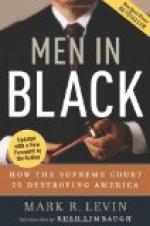Psychologists agree that no one can accurately narrate their perceptions and what happens before their eyes. Moreover, the tests performed on school and college graduates in regard to their powers of observation have shown the fallibility of human perception. The failure to perceive, plus the failure to remember, plus inadequacy of language, makes all testimony unsatisfactory. People of little education are still less able to either see or explain. The only safe way is to obtain a composite photograph of the witness’s mind and of the thoughts that arise from the original perception, a continuation of impressions.
Judges or juries never determine cases by first deciding which witness is telling the truth or at least the exact truth. They take it for granted that both sides are lying somewhat; that no matter how well they mean and how hard they try, all witnesses are incapable of telling the exact truth. The unfortunate part of the law is that this is not officially recognized. There is a hypocrisy in not recognizing the inadequacy of human eyes and ears to grasp even simple concrete facts. A timidity exists that will not allow the admission of human imperfection.
The proof of this is that when three witnesses go on the stand and describe a thing as having happened in the same way, immediately there is a strong doubt in the mind of the jury about the whole case. Suppose the question of the time a crime was committed arises and the defense tries to prove an alibi by showing the defendant was in a saloon at that time. There may have been three witnesses who really saw him at the same time. One witness comes on the stand and says 3:10, the next witness says he saw him at 3:10, and third says the same. The jury conclude that the story has been made up.
Yet suppose the first witness says he saw him sometime after lunch, and the second that he remembers seeing the defendant in the saloon sometime that day, but he is not sure whether it was in the morning or the afternoon, and the third witness says that he saw him during the week, but that he does not remember the day, whether a Thursday or a Friday—it is probable that the defendant will have a much better chance of succeeding with his alibi.
The lady in the car could not remember the time of the day, except that it was near the children’s bed time. She had heard the crash and seen the wagon turn on to the car tracks. With a great many objections she finally gets to the point of the crash.
“Did you see the car hit the wagon?” “I object to that as leading,” says the other lawyer. “It is leading and suggestive.” Technically he may be correct, but if the judge has common sense he overrules the objection.
The proper question would be: “What happened next?” The witness, however, might remember the paper bag of oranges she was carrying to her grandchildren and instead of telling about the accident begin to describe how she dropped them on the floor. Leading questions are necessary in nearly every case. The reason that they are objectionable and ruled out is, that the judge and the jury ought to hear not the lawyer’s narrative of the facts, but what the witness actually remembers.




